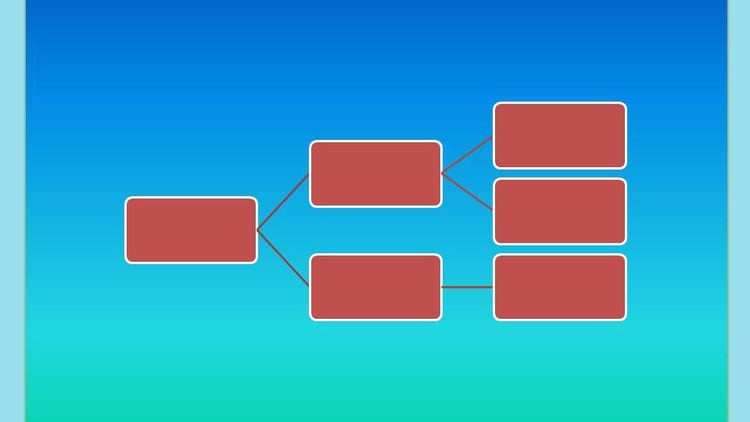
Big Data Programming Languages,Skills to become a Big Data Professional,Differences between Big Data & Data Science
⏱️ Length: 36 total minutes
⭐ 3.67/5 rating
👥 64,542 students
🔄 April 2020 update
Add-On Information:
Note➛ Make sure your 𝐔𝐝𝐞𝐦𝐲 cart has only this course you're going to enroll it now, Remove all other courses from the 𝐔𝐝𝐞𝐦𝐲 cart before Enrolling!
- Course Overview
- This concise, high-impact course serves as an essential gateway for individuals new to the burgeoning fields of Big Data and Data Science, offering a rapid, yet comprehensive, conceptual introduction.
- Designed as a strategic orientation, it systematically unpacks the fundamental principles that both differentiate and connect these two pivotal domains within the modern technological ecosystem.
- You will gain a high-level appreciation for the various programming paradigms prevalent in Big Data, understanding their core purpose and general application without delving into intricate code execution.
- The module is meticulously structured for busy professionals or students seeking an efficient yet thorough overview of the diverse career trajectories available within the vast Big Data landscape.
- It provides a clear, actionable roadmap for aspiring Big Data professionals, illuminating the foundational competencies and mindset highly valued by employers in this specialized industry.
- Serving as a critical conceptual cornerstone, this learning experience prepares you to make well-informed decisions regarding your subsequent educational and professional development in the realm of massive datasets.
- Requirements / Prerequisites
- No prior programming expertise is required; this course is specifically crafted for absolute beginners eager to understand the Big Data ecosystem from a conceptual standpoint.
- A keen curiosity for data-driven technologies and their transformative impact across various sectors is highly recommended to maximize your engagement and learning.
- Basic computer literacy and a general comfort with navigating online learning platforms will ensure a seamless and productive educational journey.
- An open, inquisitive mind and a genuine desire to explore potential career pathways in the rapidly evolving world of data are the primary prerequisites for success in this module.
- Skills Covered / Tools Used
- Develop a robust conceptual framework for understanding the diverse computational paradigms governing large-scale data processing and sophisticated analytical tasks.
- Cultivate the strategic acumen required to conceptually discern appropriate technological approaches for various high-volume, high-velocity data challenges.
- Gain insightful knowledge into the architectural considerations behind designing and scaling distributed data solutions, emphasizing the role of different programming methodologies.
- Enhance your ability to conceptually articulate the fundamental distinctions in problem-solving approaches employed by data engineers versus advanced data analysts or scientists.
- Acquire the foundational understanding necessary to evaluate, at a strategic level, the suitability of various programming ecosystems for specific Big Data tasks.
- Learn to identify the key conceptual underpinnings of languages predominantly favored for parallel processing and highly distributed computing environments.
- Understand the strategic implications of choosing specific development environments based on critical factors like data volume, velocity, variety, and veracity.
- Build a comprehensive mental model of the end-to-end data lifecycle within an enterprise context, from initial data ingestion to the ultimate generation of actionable business insights.
- Benefits / Outcomes
- Emerge with heightened clarity on potential career trajectories within the expansive Big Data and Data Science domains, enabling you to undertake informed professional planning.
- You will be equipped to confidently engage in industry discussions, utilizing a precise lexicon to articulate Big Data concepts, methodologies, and their broader implications.
- Gain a significant strategic advantage in understanding complex job descriptions and specific requirements for roles spanning data engineering, advanced analytics, and machine learning.
- Establish a solid conceptual bedrock upon which to confidently build specialized technical skills, ensuring all future learning efforts are well-directed and maximally efficient.
- Reduce ambiguity surrounding the often-interchangeable terms prevalent in data-centric fields, providing you with a distinct mental model for each specialized area.
- Empower yourself to make strategic choices regarding subsequent educational investments, focusing on learning paths that genuinely align with your professional aspirations in Big Data.
- Develop a profound appreciation for the strategic importance of Big Data in modern enterprises and its indispensable role in driving innovation, competitive advantage, and digital transformation.
- PROS
- Exceptional time efficiency: Delivers a substantial conceptual understanding of complex fields in a remarkably short duration, making it ideal for busy professionals and students.
- Beginner-friendly: Perfectly tailored for individuals with no prior experience in data science or Big Data, offering a gentle and accessible introduction to core concepts.
- Clarity on distinctions: Effectively addresses the common confusion between Big Data and Data Science, providing clear boundaries, overlaps, and distinct career focuses.
- Strategic career guidance: Offers valuable, actionable insights into the essential skills and definitive pathways required to become a proficient Big Data professional.
- CONS
- Lacks practical application: Due to its highly concise nature, the course focuses solely on conceptual understanding and does not include hands-on coding exercises or in-depth tool implementation.
Learning Tracks: English,Development,Data Science
Found It Free? Share It Fast!